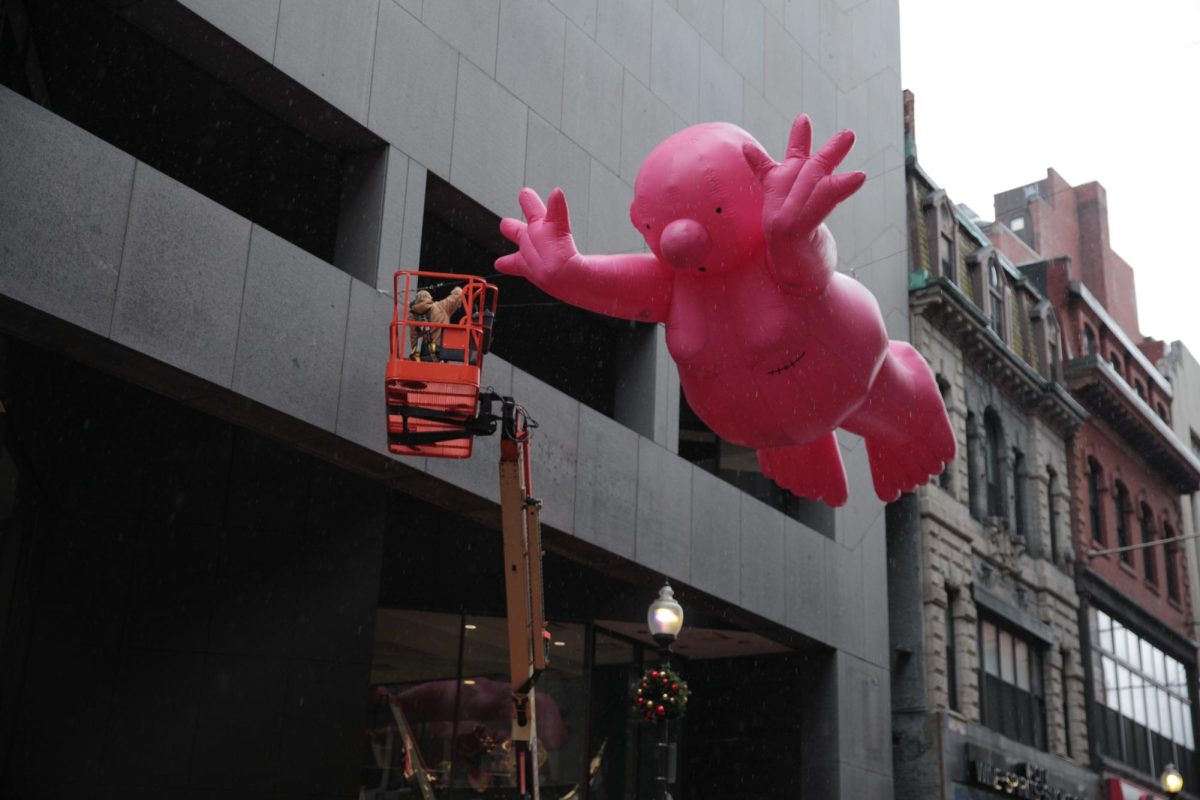By Rebecca Sirull, inside columnist
My favorite form of punctuation is the period. Simple and unpretentious, it puts on no airs and wears no frills. Physically, it offers nothing. It possesses neither the elegant curve of the question mark, the passionate spunk of the exclamation point nor the elusive playfulness of the semi-colon.
It is the sensibly dressed, somewhat homely middle-aged man of grammar. It wakes up in the morning, selects a tie from its closet, kisses its wife on the cheek and heads off, briefcase in hand, to its average-salary job. The period draws no stares from passersby. In fact it is usually over-looked completely, ignored by carefree, bruise-prone children and loud, gum-smacking teenagers.
It floats through life with little recognition, but that doesn’t bother it. As other punctuation marks vie for the spotlight, shoving each other aside to be most remarkable, the period is content sitting in the audience politely applauding and chuckling at the others’ antics. While it receives no award, makes no speech and cries no phony tears of joy, the period uncomplainingly takes its place at the end of each of our sentences, dutifully serving its purpose.
Let the semicolon and em-dash fight over the right to mark the beginning and end of our clauses. Let them be the topic of debate in editors’ offices. A period does not prolong the argument, but rather provides a solution, an escape. No one denies a period’s place at the end of a written thought.
Although our eyes skim over it on the pages of our favorite novel, without it there would be nothing but a crowded mêlée of incomprehensible words. The period adds order and structure. It provides a framework through which we guide our minds. It is the responsible one. The student who always hands his homework in on time. The friend who promptly returns calls. The mother who never forgets to pack her children’s lunch.
Maybe this is the reason I am so drawn to the period. While I have been fortunate to know many people who fit this description, I am not one of them. I regularly misplace my belongings, arrive late to events and sneak an extra my-diet-starts-tomorrow brownie even when I know it won’t. But even as I accept that I will never become a responsible, rational period, I draw comfort from its constant presence. It is there to save me from the seemingly never-ending sentence of a bone-dry mandatory reading. It steps in when I’m floundering to complete a thought. It is the old, but forever-loyal dog that comes bounding up to greet me after a long day.
The period is one of the most basic elements of written language. It is the first mark learned by kindergarteners, squirming through story time. And periods are there at the very end, concluding every essay, textbook, screenplay and love note. Even Shakespeare finished off “Romeo and Juliet” with a flourish of his ink-tipped quill, making the simple dot. While words constantly change and evolve, the period presides over them, stoic and immovable. It represents the part of our language that is solid and whole. It is a mark to be trusted. It doesn’t need to constantly and flashily remind us that it is there at the end of our sentences, because we already know that it is and always will be. Period.
Photo courtesy Samuel-Jones, Creative Commons










